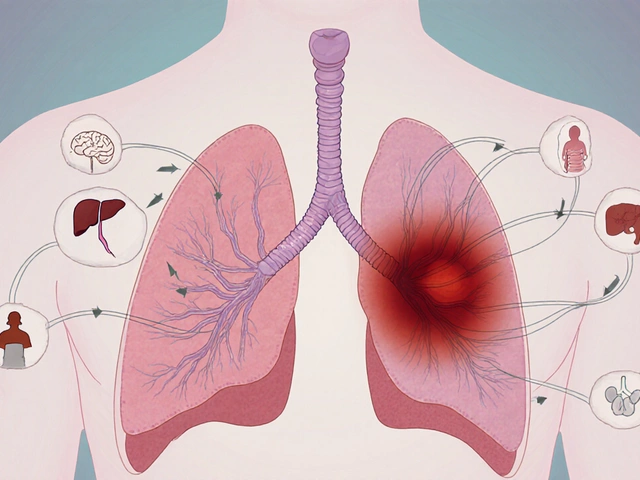- Home
- Orthopedics
- What Hurts the Most After Knee Replacement Surgery?

What Hurts the Most After Knee Replacement Surgery?
So, you've just had knee replacement surgery, or you're about to. You're probably wondering what kinds of pain you'll face and how to tackle them. First, let's be real – the aftermath isn’t a walk in the park, but knowing what hurts and why can make a world of difference.
For starters, expect some stiffness and swelling. It's totally normal. Your body’s been through a major procedure, and it's got some healing to do. The real kicker, though, is that sharp pain around the incision or inside the knee. This pain can happen when the nerves are waking up. It usually gets better, but those first few days can feel pretty rough.
Managing this pain isn’t just about popping pills. It's about being proactive with stuff like physical therapy. Moving around, as uncomfortable as it sounds, really helps. Little by little, each bend and stretch makes it easier. And hey, don't underestimate the power of ice packs. They're your best friend for keeping swelling in check.
- Types of Pain After Surgery
- Managing Post-Surgery Discomfort
- Setting Realistic Recovery Goals
- Common Recovery Challenges
- Tips for a Smoother Recovery
Types of Pain After Surgery
Understanding the kinds of pain that come with knee replacement surgery can really help you manage them better. So, what are we talking about?
Incision Pain
This is probably the first thing you’ll notice. It’s that sharp, stinging sensation around the place where the surgeon made the cut. It’s most intense during the first few days but slowly fades as your body gets to work on healing.
Swelling and Stiffness
After all, you've gone through surgery, which leaves the knee a bit irritated. Some swelling is par for the course and might hang around for a few weeks. It can make things feel tight and a bit inflexible.
Deep Ache
There's also a deeper achy pain inside the joint. It’s almost like a dull throb that might show up when you’re moving around or trying to sleep. This comes from what's happening deep down, where the joint was replaced.
Nerve Pain
This can feel like a mix of burning or stabbing sensations. It happens because the nerves are essentially rebooting after being disrupted during surgery. It's often unexpected, but usually temporary.
Common Pain Levels
| Type of Pain | Duration (Days) |
|---|---|
| Incision Pain | 3-5 |
| Swelling and Stiffness | 14-21 |
| Deep Ache | 4-6 weeks |
| Nerve Pain | varies |
Knowing these pain types means you can have a better chat with your doctor about how to handle them. Whether it’s through medication or exercises, being informed is an ace up your sleeve in recovery.
Managing Post-Surgery Discomfort
Tackling the discomfort after a knee replacement isn't just about gritting your teeth and waiting for it to pass. There are proactive steps to make these early days bearable and speed up recovery.
Medication
First off, the magic of modern pain relief shouldn't be underestimated. Your doctors will likely prescribe you a mix of medications to cover different types of pain. Make sure you're taking them on schedule, even if you're not feeling too bad. It keeps things under control before they get wild.
Physical Therapy
Physical therapy is more than just exercising; it's targeted movement to help you recover faster. Those little stretches and bends hurt now, but they're key to regaining full motion and minimizing long-term pain. They also help combat stiffness and swelling. Your therapist will be your guide – don't skip visits!
Ice and Elevation
Simple things like icing and elevating your knee can make a big difference. An ice pack reduces chemical activity in your knee, slowing down swelling. Throw your leg over some pillows or a cushion to keep it elevated and let gravity lend a hand.
Stay Active, But Rest
It sounds contradictory, right? But hear me out. Light activity, like a short walk around the house, keeps the blood flowing and aids healing. Just make sure you alternate with plenty of rest. If you're turning down invites and bingewatching shows, you're healing smartly.
Guided Relaxation
Ever thought about meditation? It might sound unexpected, but guided relaxation really helps in keeping stress, and by extension, pain, in check. When the mind is calm, your body tends to follow.
For a look at the typical recovery phases, check out this basic timeline:
| Weeks After Surgery | What's Typical |
|---|---|
| 1-2 | Controlled pain with medication, light movement |
| 3-6 | Less pain, increased exercise intensity |
| 7+ | Residual discomfort, returning to normal activities |
Nailing your recovery is possible with good habits and the right help. Lean into these methods and you'll find the road a bit smoother.

Setting Realistic Recovery Goals
Alright, let's talk recovery goals. After your knee replacement, you might feel like you should be up and running a marathon in no time. But hold your horses – setting realistic goals is key to a smooth and successful recovery journey.
First things first, patience is your new best friend. Aim to walk without assistance from a walker within four to six weeks, but don't beat yourself up if it takes a little longer. Everyone heals at their own pace. The goal isn't perfection, it's progress.
Short-Term Goals
- Week 1 - 2: Your focus is on managing pain and swelling. Frequent, gentle exercises and daily walks with aid will help.
- Week 3 - 4: Work on bending and straightening your knee. Aim for a 90-degree bend.
- Week 5 - 6: Try walking with just a cane or stick. You might still need pain relief, and that's okay.
Long-Term Goals
- 3 - 6 Months: This is when the magic starts. Walk longer distances and consider swimming or cycling to build strength.
- Beyond 6 Months: You're aiming for pre-surgery activity levels. Most people can return to low-impact sports like golf or dancing.
How long does a full recovery take? Most people see significant improvements within a year after knee replacement surgery. However, it's not uncommon for some discomfort to linger, especially after physically demanding activities.
Finally, remember: you're not alone in this. Reach out for support from physical therapists, family, or support groups. They can offer not just motivation but also practical advice tailored just for you. Keeping expectations realistic and adapting as you go can make this tough journey a bit smoother.
Common Recovery Challenges
Recovering from a knee replacement surgery isn't just about dealing with pain; it's also about facing some unexpected hurdles along the way. If you're aware of these challenges, it's easier to tackle them head-on and keep your recovery on track.
Balance and Mobility Issues
After surgery, you might find that your balance is off. Getting up and moving around can be daunting, but it’s crucial. Mobility aids like walkers or crutches can be lifesavers early on. Practice is key here; the more you move, the easier it gets.
Struggling with Swelling
Swelling is one of the most common recovery annoyances. It’s your body’s way of healing, but nobody likes walking around with a puffy knee. To minimize swelling, elevate your leg whenever possible and apply ice packs regularly.
Following Physical Therapy
Sticking to your physical therapy routine can be tough. Those exercises might be tedious, but they're vital for regaining strength and flexibility. Skipping sessions can slow down your progress, so try to stay committed, even on days when it feels like a drag.
Stiffness and Limited Range of Motion
Moving your knee might feel awkward at first. Some folks experience stiffness that can really limit movement. Regular stretches are a must to loosen things up. Remember, patience and consistency are key when achieving a better range of motion.
Recovery times can vary, but having a supportive network can make the journey a bit easier. Share your ups and downs with family and friends; they can offer assistance or just lend an ear when you need it.
The right mindset is half the battle. Facing these challenges realistically, knowing they are part of the process, helps manage expectations and keeps you motivated. Just remember, each day you're moving one step closer to getting back to your life as usual.

Tips for a Smoother Recovery
Getting through knee replacement surgery is just the beginning. The real work starts after, with your recovery. Here’s a list of practical tips to help you bounce back faster and more comfortably.
Stay Active, But Don't Overdo It
Keeping your new knee moving is crucial to your recovery. Gentle exercises prescribed by your physical therapist help improve mobility and reduce stiffness. Just remember, it’s a marathon, not a sprint. Moderation is key. Trying to do too much too soon might set you back.
Stick to Your Pain Management Plan
Your doctor has given you a pain management routine for a reason. Stick to it. Don't wait until you’re in agony to take your meds. Staying ahead of the pain can make your rehab exercises much more bearable.
Ice and Elevate
Ice packs can be a real game-changer in reducing inflammation and pain. Pair it with elevating your leg to keep the swelling down. Aim for 15-20 minutes every hour in the first few days. Trust me, your knee will thank you.
Fuel Your Body with the Right Stuff
Nutritious, balanced meals are more important than ever. Your body needs extra energy to repair itself. Think lean proteins, veggies, and fruits. Staying on top of your hydration game will also help your body heal efficiently.
Watch for Red Flags
If something feels off, like severe pain that doesn’t seem normal, contact your doctor. Staying vigilant can prevent complications. Look out for excessive redness, swelling, or any signs of infection.
Track Your Progress
It’s easy to feel like you’re not making progress, but day-to-day changes can be subtle. Keep a log of your milestones, like bending your knee a little more or walking that extra step. It’s a morale booster to see how far you’ve come.
And remember, everyone recovers at their own pace. Comparing yourself to others can be disheartening. Keep your eye on your own journey, and you'll get there.

Arnav Singh
I am a health expert with a focus on medicine-related topics in India. My work involves researching and writing articles that aim to inform and educate readers about health and wellness practices. I enjoy exploring the intersections of traditional and modern medicine and how they impact healthcare in the Indian context. Writing for various health magazines and platforms allows me to share my insights with a wider audience.
About
Medical Resource Center India is a comprehensive online platform dedicated to providing reliable health information and medical resources in India. Explore a wide range of articles, tips, and advice on medicine, healthcare services, and wellness. Stay informed about the latest developments in Indian medicine and access valuable insights into maintaining a healthy lifestyle. Discover expert guidance and health solutions tailored for every Indian citizen. Your go-to destination for authoritative medical knowledge in India.






